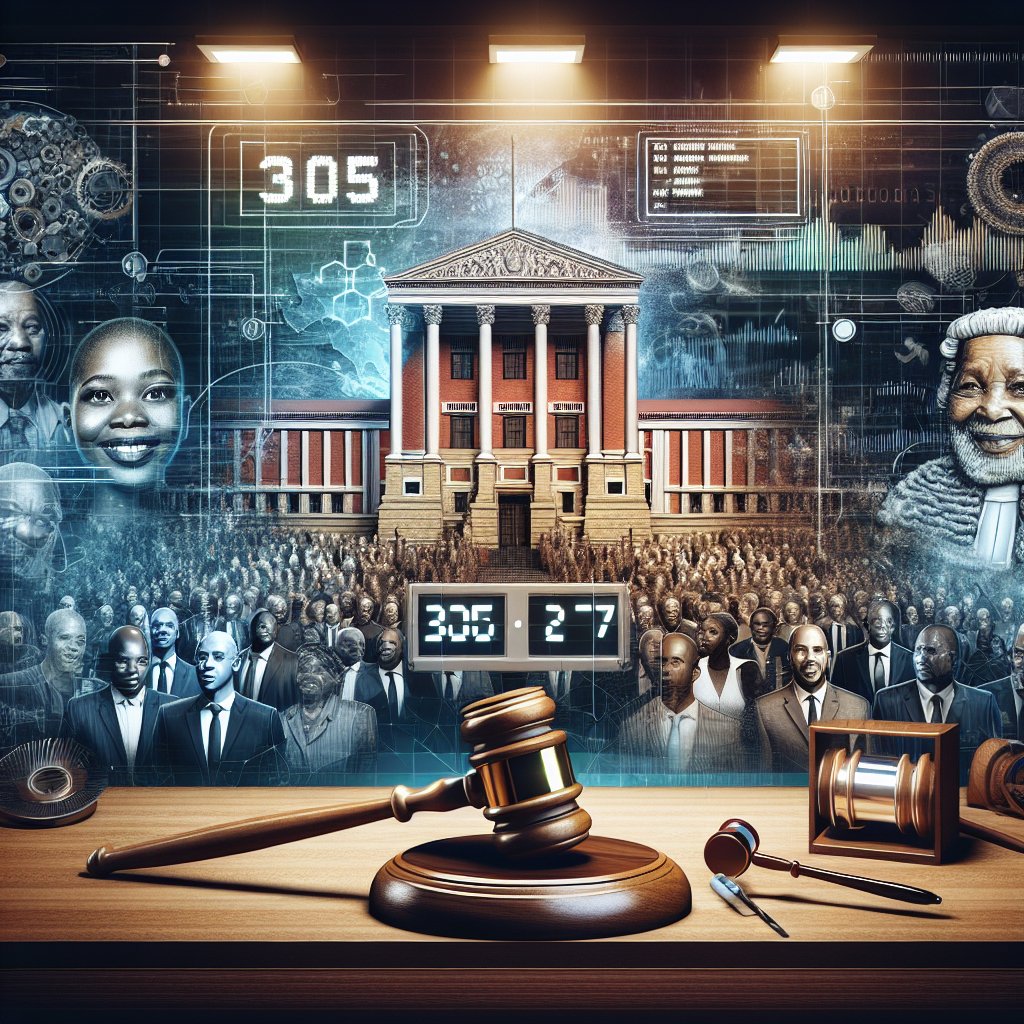Image created by AI
EFF Leader Julius Malema Stands with Impeached Judge John Hlophe
The political landscape in South Africa has witnessed another significant turn of events with the impeachment of Western Cape judge president John Hlophe by parliament. In a decisive vote of 305 to 27 on Wednesday, the long-standing legal controversy surrounding Judge Hlophe has seemingly reached its conclusion. However, the story resonates beyond the parliamentary walls, as prominent figures, including Economic Freedom Fighters (EFF) leader Julius Malema, weigh in on the outcome.
Controversy has followed Judge Hlophe since 2008, when accusations surfaced that he had attempted to sway the opinions of Constitutional Court judges in a matter involving former president Jacob Zuma and the arms company Thint. The Judicial Service Commission (JSC) found Hlophe guilty of misconduct, a verdict leading to his suspension and subsequent removal from office after an extended legal and investigative process.
In the wake of these events, EFF's vocal head Julius Malema expressed unwavering solidarity with Hlophe, affirming that despite his removal, "you will never go to bed hungry." Malema's words echo a sentiment of brotherhood and support, indicative of shifting political alliances and the complexities within South Africa's judiciary narrative.
Malema, whose past criticism of Hlophe in 2017 painted a starkly different picture, has called for Hlophe to establish an organization akin to existing civil rights entities to continue his work within the legal sphere, demonstrating a dramatic change in his stance towards the impeached judge. This newfound support is indicative of the unpredictability of political affiliations and the intricate interplay between South Africa’s legal, political, and social realms.
Adding to the chorus of EFF voices, MP Omphile Maotwe publicly criticized ANC MPs who sided against Hlophe and added a layer of political introspection by predicting the eventual downfall of the ANC.
This politically charged saga reached a personal note when Judge Hlophe, on an EFF podcast, implied that his legal woes were a result of political machinations rather than objective legal procedure. Hlophe reasoned that the resumption of his case, spurred by the Western Cape government and political figures like DA federal chairperson Helen Zille, was grounded in ulterior motives rather than the pursuit of justice.
The Democratic Alliance (DA), represented by MP advocate Glynnis Breytenbach, lauded parliament's decision, asserting that the subsequent impeachment upheld their long-maintained view on Hlophe's integrity as a judge. The DA's response highlights the broader concern over the extent of time it took to resolve the matter, pointing to what they deem unnecessary complexities and political entanglements that prolonged the process.
Despite the parliament's conclusive action, the discourse continues as political parties and the public digest the implications of Judge Hlophe's removal. The case of John Hlophe unravels as a complex tapestry of legal judgments, political influences, and the inexorable quest for integrity within South Africa’s judicial system. As the nation moves forward, the debate over the intersection of law and politics remains as poignant as ever.










